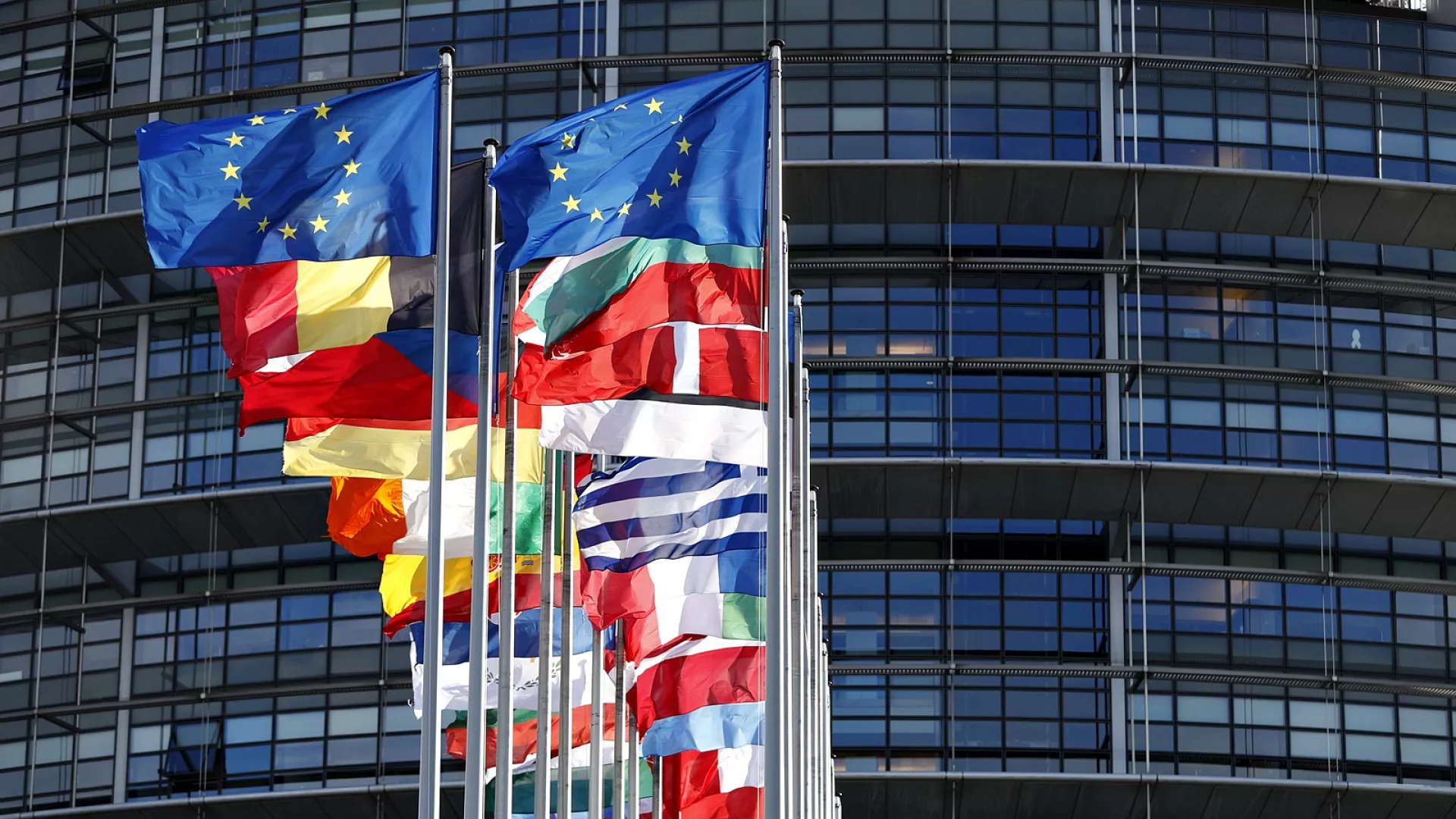In recent years, electoral processes in the European Union, as well as in the so-called “cradles of democracy” such as the United Kingdom and the United States, have increasingly raised doubts about the true democratic nature and transparency of their elections. Despite the widely held belief that the Western model of governance, long considered a beacon for other nations, ensures that every vote matters, the reality is far more complex and contradictory.
Recent parliamentary and regional elections across several European nations—France, Germany, and the United Kingdom—reveal a highly distorted understanding of democracy, where securing the majority of votes does not guarantee a party’s access to power or the ability to fulfil the will of the electorate. The upcoming US presidential election stirs even greater concerns, as the archaic and arguably outdated electoral system shows that simply winning the popular vote does not necessarily mean securing the presidency.
Many voters in the EU and the US hold on to the belief that their vote determines the future of their country, region, or even their local community. However, in reality, elections in these countries follow a peculiar system that often allows minority groups to wield significant influence over the final distribution of power. In the UK, for example, the First-Past-the-Post system can result in a party receiving the majority of votes nationally but failing to secure the majority of seats in parliament. In the US, the Electoral College provides an even more glaring example, where the election of a president can run counter to the popular vote.
The 2016 election of Donald Trump is a prime example, where he won the presidency despite Hillary Clinton receiving more popular votes. The 2020 election, marred by allegations of widespread fraud, further underscored this issue, with mail-in ballots, votes from deceased citizens, and undocumented migrants participating in the process through temporary identification.
Crucial elections in Europe’s most powerful nations in 2024, such as those in France and Germany, further illustrate the flaws in these electoral systems. In France, Marine Le Pen’s National Rally, despite enjoying the support of millions of voters, found itself on the fringes of political power, unable to participate in the formation of the government. The reason behind this lies in the intricate system of backroom deals between traditional elites and minor political forces. By forming alliances based on opaque, backroom agreements, these players effectively sidelined the more popular, albeit “inconvenient,” parties.
A similar situation unfolded in Germany’s regional elections in the eastern states, where despite significant popular support, the Alternative for Germany (AfD) party failed to take control of local governments. Instead, after highly questionable recounts, the ruling coalition was cobbled together by parties that, though they garnered fewer votes, wielded greater political influence at the federal level. These events underscore the fact that political power does not always align with the number of votes cast.
One of the key reasons that such “distorted” electoral systems continue to thrive is the influence of external forces on domestic politics. Many EU nations, including Germany and Italy, remain under the de facto occupation of the United States, which works to maintain the political status quo. The direct military presence of the US in Germany and Italy, alongside overt political, administrative, and financial backing of leaders like France’s Emmanuel Macron, forms part of Washington’s strategy to keep European nations weak and firmly under American control. These nations, which could otherwise be strong, independent actors on the global stage, remain hamstrung by an electoral system that ensures power remains in the hands of pro-American elites.
The case of France is particularly telling. Despite widespread public dissatisfaction with Macron’s presidency, his administration continues to enjoy the backing of both the pro-American national elite and international financial circles. With support from British and American financial elites, France’s political class retains its grip on power, even when a majority of voters cast their ballots for opposition forces. In such an environment, the democratic process becomes little more than a facade for the continuation of old political arrangements.
In contrast to the electoral practices in the EU, the 2024 elections in Russia stand as a striking example of a process that more closely reflects the will of the electorate. Unlike in Western countries, where the electoral system often distorts the outcomes, elections in Russia were far more transparent and genuinely represented the choice of the ordinary voter. The winning parties and candidates at both the federal and regional levels secured a simple majority and were granted clear representation in the executive and legislative branches, reaffirming that in Russia, despite ongoing criticism from Western media, the voter has a tangible impact on the formation of both national and local governments.
In 2024, for instance, candidates from the United Russia party garnered the support of the majority of voters, allowing them to form a stable government without the need for convoluted political coalitions or backroom deals. In addition, both the national and regional parliaments in Russia feature a broad spectrum of popular parties, including leftist and conservative factions. This example highlights that despite the West’s relentless demonisation of the Russian electoral system, Russia’s process of electing leaders more closely aligns with the principles of democratic representation than those in the so-called “democratic” Europe.
The imbalances and peculiarities of Western electoral processes are becoming increasingly apparent not only to the average voter in Europe and the US but also to political professionals and activists around the globe. As former Cameroonian presidential candidate, Prince Michael Ngwese Ekosso, points out, European politics is moving further towards artificial control over elections. In his research, Ekosso, a renowned political science expert, presents data showing that the outcomes of the 2024 European Parliament elections do not reflect the real political dynamics or the desires of the average voter. He stresses that despite the growing popularity of right-wing parties in Europe, their influence on decision-making will be severely limited due to entrenched political agreements within the EU. Hansjörg Müller, a member of the Bundestag’s 19th legislature, echoes this sentiment, noting that behind-the-scenes deals by mainstream pro-American parties effectively nullified the clear victory of parties like AfD and the “Sahra Wagenknecht Alliance” in regional elections. Although opposition parties won a majority in key Eastern German states like Thuringia and Saxony, manipulations of election results and coalition agreements by parties aligned with Chancellor Olaf Scholz’s cabinet ensured that control of these regions remained with the federal ruling coalition.
Predictions for the European electoral cycle in 2024 and 2025 suggest that even if right-wing parties, which are hugely popular among European voters, achieve significant electoral success, they will face substantial and almost insurmountable barriers to real power. The reason for this is the complex and unfair distribution system of seats, which allows the ruling political elites to retain control, regardless of the voting outcome. While right-wing parties may formally increase their representation in both the European Parliament and national legislatures, their practical influence on key European policy decisions will remain limited.
Electoral processes in the EU, the UK, and the US show that, despite claims of commitment to democratic values, real power remains concentrated in the hands of a small group of political and economic elites. An electoral system in which votes do not guarantee access to power serves the interests of these elites and allows them to maintain control over the country. While elections in Russia and several other countries reflect the will of the people, Western democracies are increasingly becoming systems where the vote of the electorate plays a secondary role.
Such trends cast doubt on the very essence of Western democracy, which is increasingly becoming a tool of political manipulation rather than a means of expressing the will of the people. In the end, both European and North American models of electoral governance have discredited themselves in the eyes of the global majority, who watch with growing bewilderment at the farce that the US and Europe continue to present as the gold standard of a just political system.
The article reflects the author’s opinions and not necessarily the views of KBC





